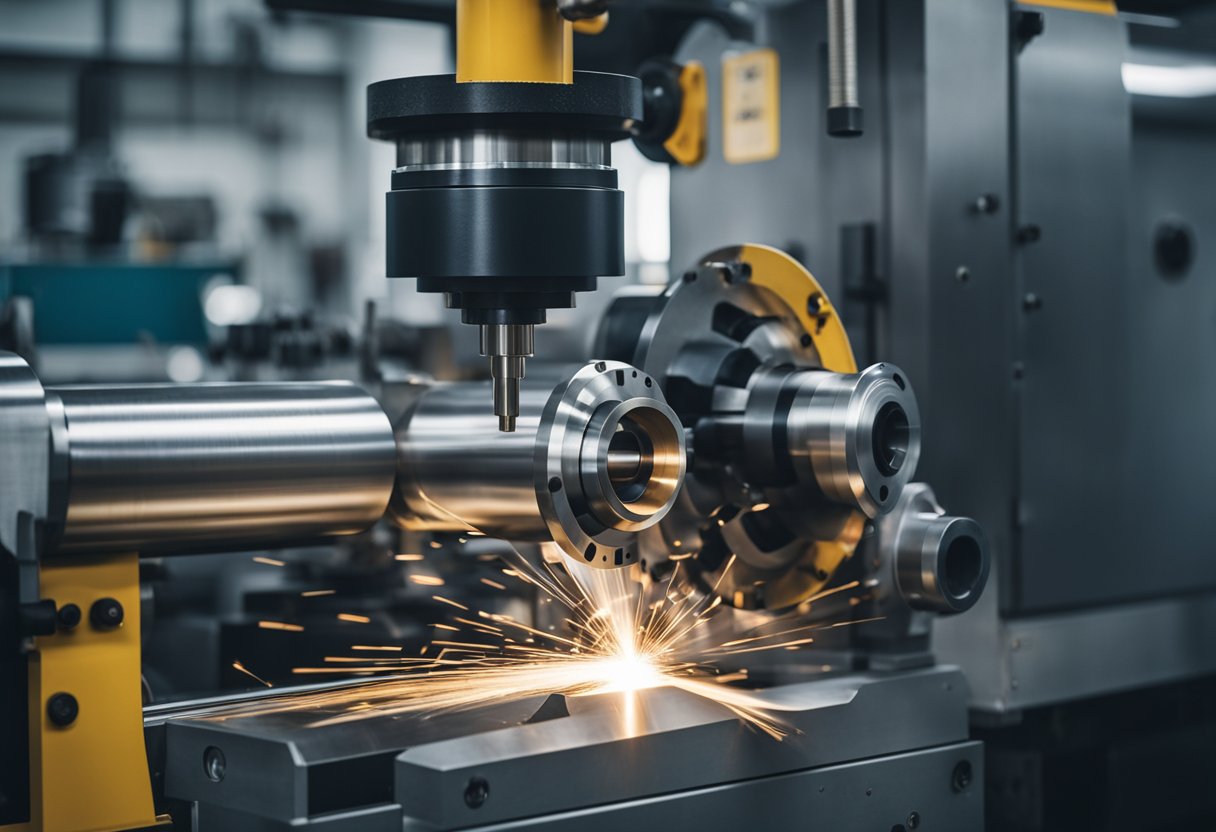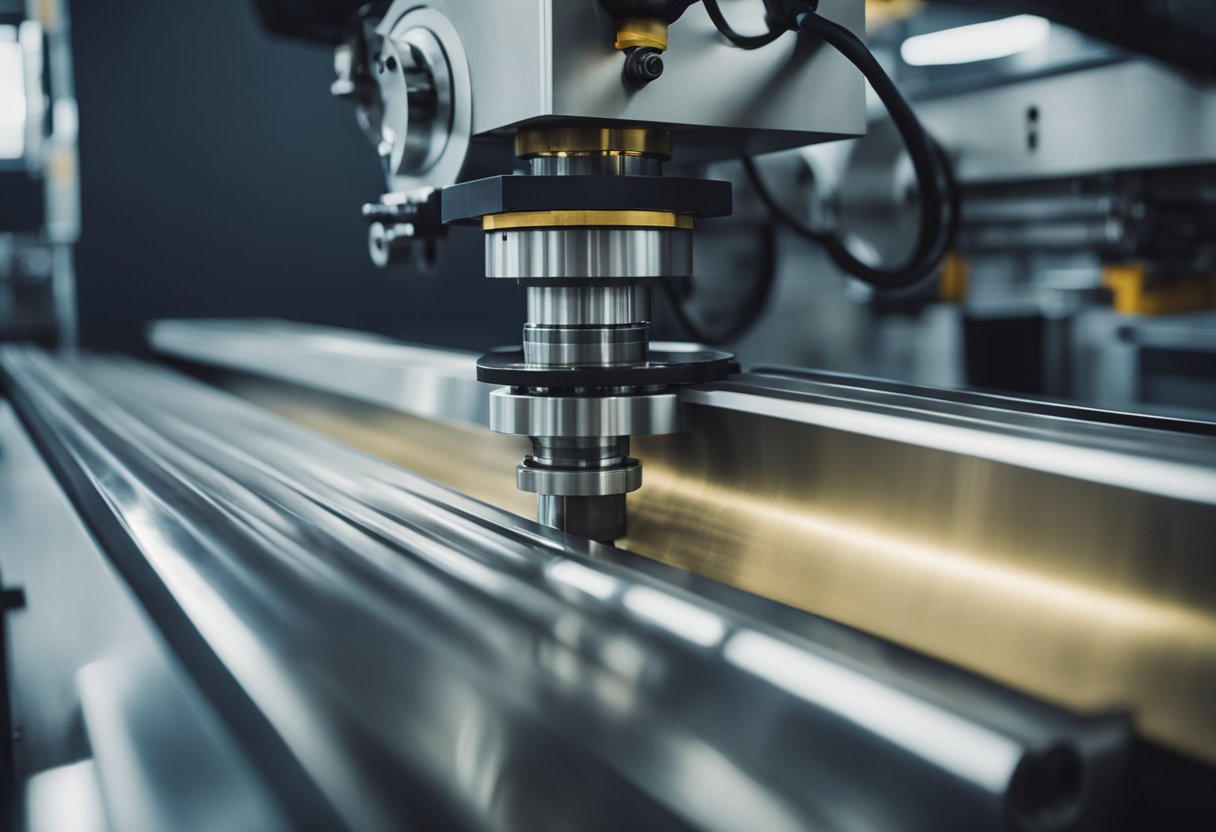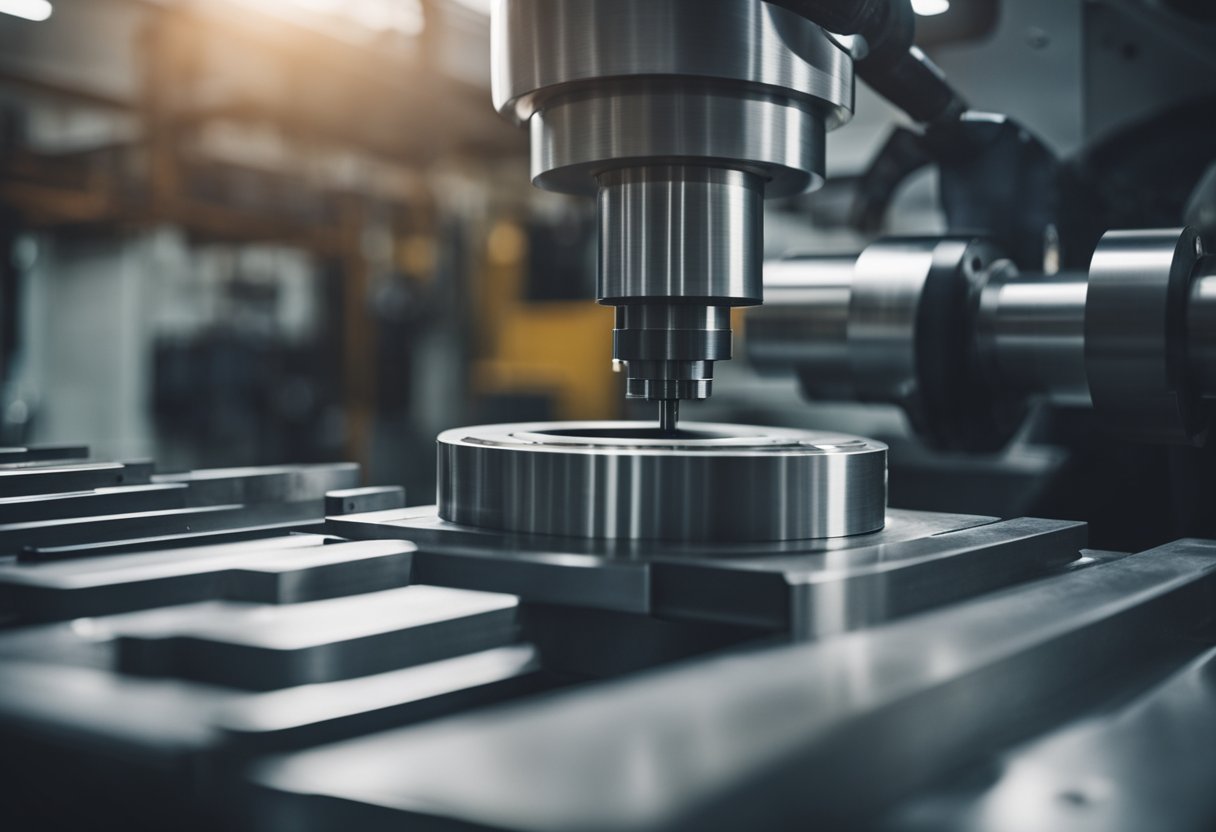CNC Metal Lathe in California: A Comprehensive Guide
California is home to a thriving manufacturing industry that plays a vital role in the state's economy. Among the many tools and technologies used by manufacturers in California, CNC metal lathes stand out as an essential component of the production process. These lathes are used to shape and cut metal parts with high precision, making them a valuable asset for any manufacturing operation.

CNC metal lathes are computer-controlled machines that use a variety of cutting tools to shape metal parts. They are capable of producing complex shapes and designs with incredible accuracy, making them ideal for a range of applications in industries such as aerospace, automotive, and medical device manufacturing. In California, there are many companies that specialize in CNC metal lathe services, offering everything from design and prototyping to high-volume production runs. These companies use state-of-the-art equipment and employ highly skilled technicians to ensure that their clients receive the highest quality parts possible.
Overview of CNC Metal Lathes

CNC metal lathes are an essential part of modern machining. These machines use computer numerical control (CNC) technology to precisely cut and shape metal parts. CNC metal lathes are widely used in various industries, including automotive, aerospace, and medical. In this section, we will provide an overview of CNC metal lathes, including the types of CNC lathes and key components.
Types of CNC Lathes
There are several types of CNC lathes, each designed for specific applications. The most common types of CNC lathes include:
- Automatic Lathes: These lathes are programmed to perform specific tasks automatically, such as drilling, cutting, and shaping.
- Multi-Spindle Lathes: These lathes have multiple spindles that allow for simultaneous machining of multiple parts.
- Sub-Spindle Lathes: These lathes have a secondary spindle that allows for additional machining operations, such as drilling and tapping.
- Vertical Machining Centers: These lathes have a vertical spindle that allows for 4-axis or 5-axis milling.
- Turret Lathes: These lathes have a turret that holds multiple tools, allowing for quick tool changes and increased efficiency.
Key Components of a CNC Lathe
A CNC lathe consists of several key components, including the spindle, turret, tailstock, and main spindle. The spindle is the rotating component that holds the workpiece and rotates it at high speeds. The turret holds the cutting tools and can be programmed to move and change tools automatically. The tailstock supports the workpiece and can be adjusted to accommodate different lengths. The main spindle is the motor that drives the spindle and provides the power needed for cutting.
CNC machines, including CNC metal lathes, are often controlled by software developed by companies such as Fanuc. This software allows for precise control of the machine's movements and can be programmed to perform complex machining operations.
In conclusion, CNC metal lathes are an essential part of modern manufacturing. They offer precise control and increased efficiency, making them ideal for a wide range of applications. Understanding the different types of CNC lathes and key components is essential for selecting the right machine for a specific task.
Materials and Manufacturing Processes
Materials Used in CNC Lathe Machining
CNC metal lathe machining in California involves the use of a variety of materials, including aluminum, steel, brass, copper, and stainless steel. These materials are chosen for their specific properties, such as strength, durability, and corrosion resistance.
In precision machining, the selection of materials is critical to ensuring that the final product meets the desired specifications. The use of advanced manufacturing techniques, such as heat treating and plating, can further enhance the properties of these materials.
Advanced Manufacturing Techniques
Advanced manufacturing techniques are an essential part of CNC metal lathe machining in California. These techniques can help to improve the quality and precision of the final product, as well as reduce manufacturing time and costs.
One such technique is surface treatment, which involves the use of coatings or finishes to improve the surface properties of the material. Another technique is inspection, which ensures that the final product meets the desired specifications.
Overall, the use of advanced manufacturing techniques in CNC metal lathe machining can help to ensure that the final product is of the highest quality and meets the specific needs of the customer.
CNC Machining Applications

Industries Served
CNC metal lathe California is an essential tool in various industries that require precision and accuracy in manufacturing. The aerospace industry, for instance, relies heavily on CNC machining for creating aircraft parts that meet stringent quality standards. Similarly, the automotive industry uses CNC machining to manufacture engine components, transmission parts, and other critical components that require tight tolerances.
The medical industry also benefits from CNC machining, with the technology being used to create surgical instruments, implants, and other medical devices. The semiconductor industry relies on CNC machining to produce the microchips that power modern electronics, while the telecommunications industry uses CNC machining to create high-precision components for communication equipment.
Custom CNC Machining Services
CNC machining services are highly customizable, allowing manufacturers to create parts that meet their specific requirements. CNC milling, for instance, is a popular CNC machining service that allows manufacturers to create complex shapes and designs with high precision. Fabrication is another CNC machining service that involves cutting, bending, and welding metal to create custom parts.
Energy companies also rely on CNC machining for creating components that can withstand harsh environments, such as oil rigs and offshore wind turbines. The government also uses CNC machining for creating parts for military equipment and other specialized applications.
It is worth noting that CNC machining services are typically ISO 9001:2015 certified, meaning that they meet strict quality management standards. This certification ensures that the parts produced are of high quality and meet customer specifications.
Technological Advancements and Automation

Innovations in CNC Lathe Technology
CNC metal lathes have undergone significant advancements in recent years, with a focus on precision and automation. One of the most notable innovations is the integration of Y-axis capability, which allows for more complex and intricate machining operations. Additionally, rigid tapping has become a standard feature, enabling the creation of precise threads with minimal tool wear.
Another area of innovation is the use of robots in CNC machining. These robots can perform a variety of tasks, from loading and unloading parts to performing quality control inspections. Turn-mill centers have also become more prevalent in the industry, allowing for the completion of multiple operations in a single setup.
Automation in CNC Machining
Automation has become a crucial aspect of CNC machining, allowing for increased efficiency and productivity. One example of this is the NLX series of CNC lathes, which feature a fully automated production turning process. These machines use robots to load and unload parts, and can even replace worn tools automatically.
Machine beds have also been designed with automation in mind, featuring built-in torque motors for high-speed and precise positioning. Xometry, a partner of many CNC metal lathe manufacturers in California, offers a range of automated CNC machining services at a competitive price.
Overall, the combination of precision and automation in CNC metal lathes has revolutionized the industry, allowing for faster and more efficient production of complex parts.
Frequently Asked Questions
What factors influence the price of a CNC metal lathe in California?
The price of a CNC metal lathe in California is influenced by several factors such as the size, complexity, and features of the machine. Generally, larger and more complex machines with advanced features such as automatic tool changers and high-speed spindles tend to be more expensive. Additionally, the brand and reputation of the manufacturer can also impact the price.
How does a CNC lathe differ from a traditional metal lathe?
A CNC lathe differs from a traditional metal lathe in that it is controlled by computer software and can perform complex operations with high precision and accuracy. Unlike traditional lathes, a CNC lathe can be programmed to produce intricate shapes and designs, and can also perform multiple operations on a single workpiece without the need for manual intervention.
What safety considerations should be taken into account when operating a CNC lathe?
When operating a CNC lathe, it is important to take several safety considerations into account. Operators should wear appropriate personal protective equipment such as safety glasses and gloves, and should ensure that the machine is properly grounded and maintained. Additionally, operators should never leave the machine unattended while it is in operation, and should follow all safety protocols and guidelines provided by the manufacturer.
What are the key differences between CNC turning and CNC lathing processes?
CNC turning and CNC lathing processes are similar in that they both involve the use of a rotating workpiece and cutting tool. However, CNC turning is typically used for cylindrical parts and involves the removal of material from the outside of the workpiece, while CNC lathing is used for non-cylindrical parts and involves the removal of material from the inside of the workpiece.
What size CNC metal lathe is suitable for small-scale operations in California?
The size of a CNC metal lathe suitable for small-scale operations in California depends on the specific needs and requirements of the operation. Generally, smaller machines with a maximum turning diameter of around 10 inches and a maximum length of around 20 inches are suitable for small-scale operations.
Where can I find a quality used CNC metal lathe for sale in California?
There are several options for finding a quality used CNC metal lathe for sale in California. Online marketplaces such as eBay and Craigslist can be a good place to start, as can local classified ads and industrial auctions. Additionally, there are several reputable dealers and suppliers of used CNC machines in California who can provide quality machines at competitive prices.
